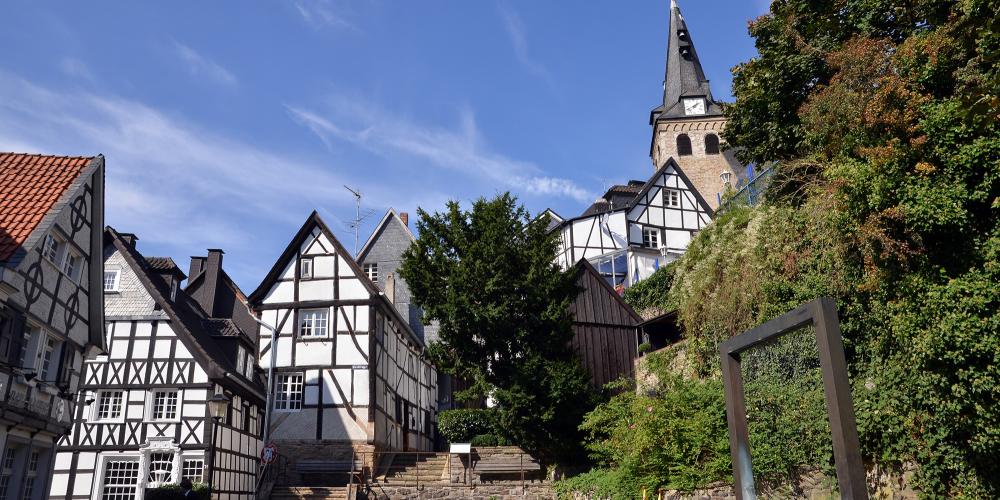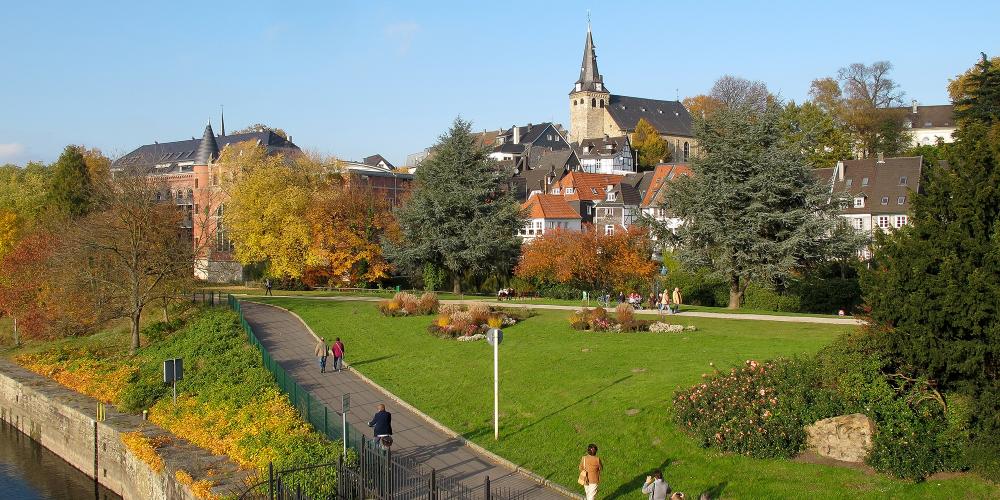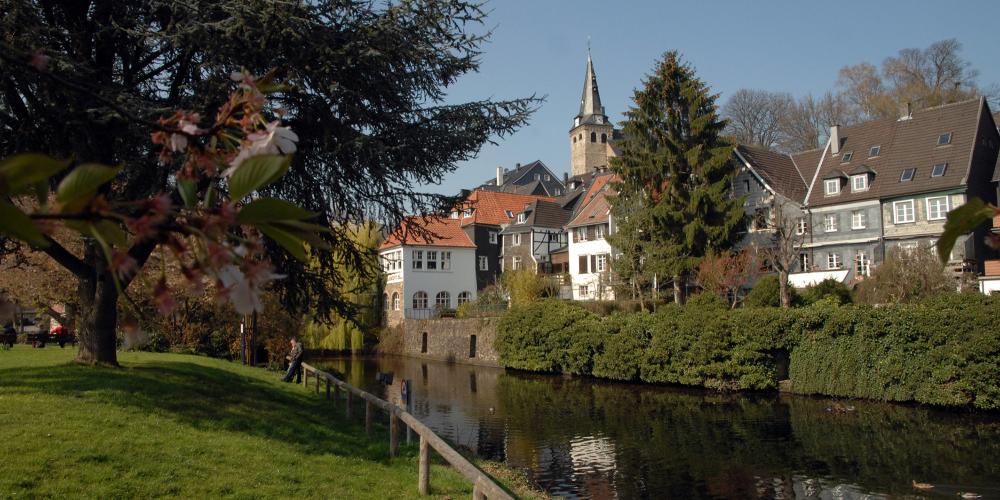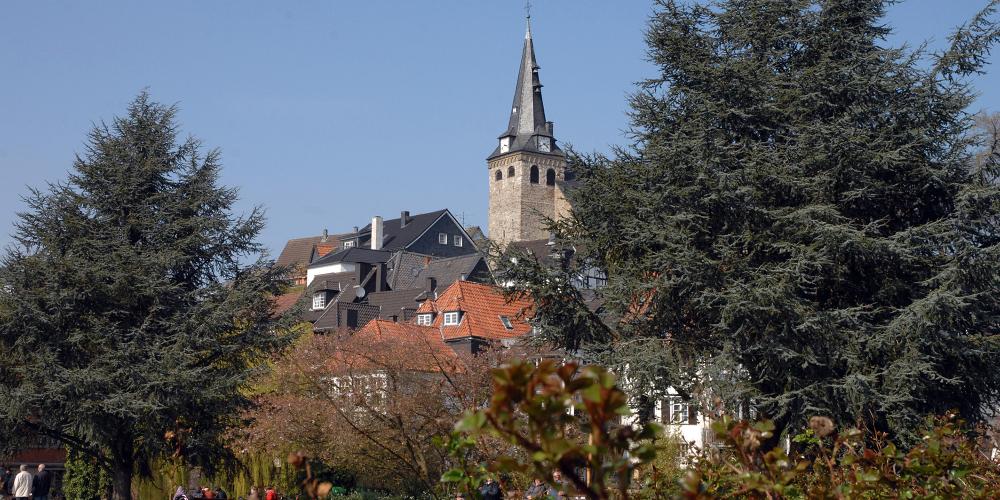Essen-Kettwig
Weaving (since 1476), coal mining (since 1585), but mainly weaving and spinning (from 1720 to 1974), with up to 2,000 employees, shaped Essen-Kettwig. The 120 weavers' houses, in the largely preserved historic old town, still bear witness to this fact.
Important sights include the bridge across the mill race, the cloth makers' square with its fountain, four baroque half-timbered houses, and the classical parish church of St. Peter. The main street leads to the Kettwig market square and the evangelical church with a 13th century steeple. It is surrounded by a variety of town houses constructed of slate. The Kettwig Sculpture Park, with 20th and 21st century artworks, is an appealing contrast in the heart of the historic centre and on the banks of the Ruhr.
If you would like to learn more about Kettwig's local and industrial history, you should visit the permanent exhibition of the "Kettwiger Museums- und Geschichtsfreunde" in the new wing of the town hall. It is open on market days (Tuesdays and Fridays) from 10 a.m. to 12 p.m., and on Thursdays from 5.30 p.m. to 7 p.m. The "Heimat- und Verkehrsverein Kettwig e. V." offers special guided tours of the town and the sculpture park as well as "night watchman" tours.
If you feel hungry after so much history or art, you can stop in one of the numerous cafés or restaurants with the ambience of half-timbered houses. Kettwig is famous for its quaint gastronomic variety.
